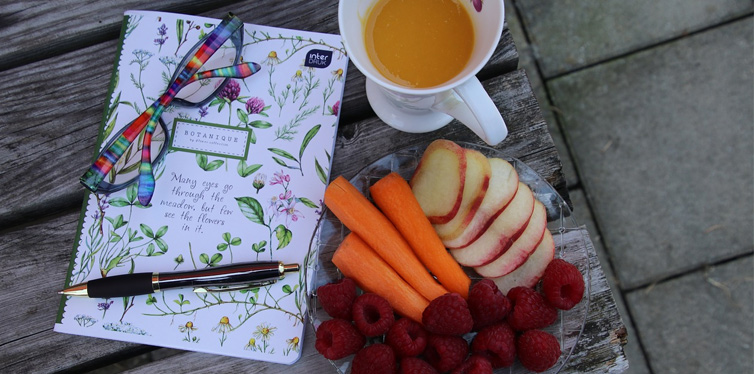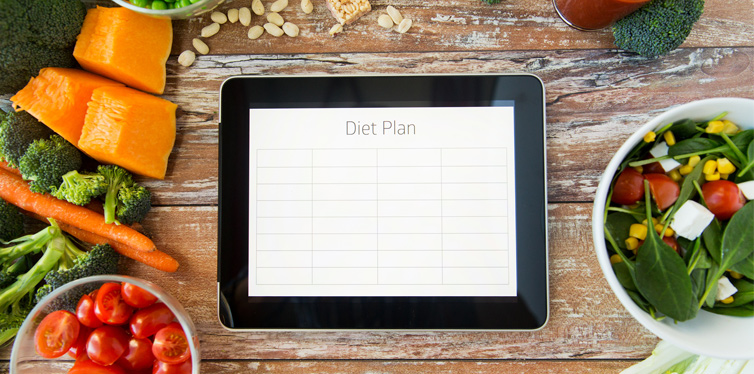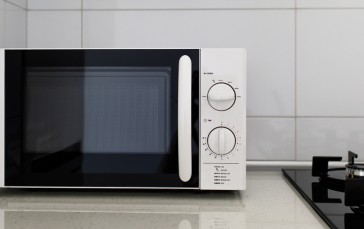Reasons To Keep A Food Diary
Food is one of the great pleasures in life, but sometimes we don’t always have the healthiest relationship with it. Whether you’re looking to lose weight, gain weight, switch to a vegetarian diet, reduce your salt intake, or simply eat a little bit healthier, then a food diary can help you to achieve whatever goals you set. There are so many great ways to track food, whether that’s through a written diary planner, a macro tracker on your phone, or a wall planner, choosing the right way for you is the first step in successfully tracking your goals. Below, we’ve outlined some of the benefits of keeping a food diary, helping you to start achieving those small changes to your diet. Remember, always seek the guidance and advice of a health professional before making any drastic changes to your diet.

Being More Mindful
Writing a food diary is a great way of being more mindful of what you’re putting into your body. We’re all guilty of having that extra piece of chocolate or finishing off that share bag of crisps, but if we’re not recording exactly what we’re putting in, then it can be difficult to pick up on these bad habits, which can potentially lead to weight gain and other health problems. It’s also a great way to take back control of portion control too, which is something may people struggle with. Some food tracker apps can take photos of your meals and identify for you if you have enough fruit or vegetables on your plate. Once you start recording this yourself in your diary planner, however, you’ll pick it up in no time at all. Knowing exactly how much we’re putting onto our plates allows us to take note of how much we’re putting into our bodies – and how much we actually need to nourish and feed ourselves.
Losing Or Gaining Weight
Whether you feel the need to drop a few pounds before a big event, or you’re looking to make a complete lifestyle change, keeping a food journal is a really effective way to lose or gain weight. You become more aware of exactly how much or how little you’re eating throughout the day and it can give you guidance on what changes you should be making. Many people are often unaware that that extra portion of chips, or sugary doughnut, or skipping a meal can be the cause of your weight gain or weight loss. The more detailed you are in your food diary, the more beneficial this will be to your overall diet changes. Try recording how much water you drink during the day as well, as this can be a crucial element in losing weight, as well as keeping you hydrated and healthy. Often, we eat when we’re thirsty, but sometimes it’s hard to tell the difference. Simply drinking a glass of water is an easy tactic to discover if we really are hungry or, in fact, just a little dehydrated. Keep a water bottle or flask nearby at all time and note down every time you take a drink.

Identifies Why You Eat
A food journal is also a great place to track your moods or track any events that have happened during the day. This is an easy way to see how your lifestyle or behavior affects the way you eat and drink. If you’re feeling low, do you automatically grab a chocolate bar or a bottle of wine (don’t forget to record alcohol intake too, as this can be a massive contributing factor to a healthy diet)? If you’re rushed off your feet, do you normally just call for a takeaway? A food tracker allows you to draw parallels between your food and your mood, providing you with the tools to make those changes you need to. In the future, if you know that Wednesdays usually mean you leave the office late, so you don’t have time to prepare a meal, why not meal prep at the weekend, batch cook, and freeze some healthy nutritious meals, ready for those busy periods? Once you start identifying those unhealthy habits through a food diary, you can then start adjusting your lifestyle to make those healthy changes.
Insight Into Food Intolerances
Noticing that you’re constantly ill after eating a particular type of food? Tracking what you eat and how you feel afterward is a brilliant way to discover whether you actually have an intolerance to something and then cut it out of your diet. Make sure you discuss this with your health professional first, but keeping a record of what you’ve eaten and how you feel is one of the first steps in realizing there might be something amiss. Once you’ve made a decent record in your diary, your nutritionist or dietician might be interested in taking a look as well and comparing it to their own notes.

Reaching Your Goals
If you’ve struggled in the past to lose weight or become healthier, then that might be because you’re not accountable for your actions and can’t see exactly where you’re going wrong. It’s very easy to think we’re doing the right things to lose weight or change our lifestyles, but in fact, we’re replacing unhealthy habits with even unhealthier ones! Taking note is the first way to take control of your diet. The more you are accountable for your actions, the more likely you are to achieve your goals.
Increase Your Fruit And Vegetable Intake
Many of us have access to various fruit and vegetables, but many of us do not take advantage of the abundance of nutritional sustenance with have on offer. Recording in your food diary how much fruit and veg you consume throughout the day is a really effective way of surprising ourselves with how little we actually eat. Once you’ve noticed that you can replace that 3 pm chocolate biscuit with some carrots and hummus, or your after dinner ice cream with some yogurt and fresh fruit, it’s the easiest way to make small, simple changes, that make a dramatic difference.









